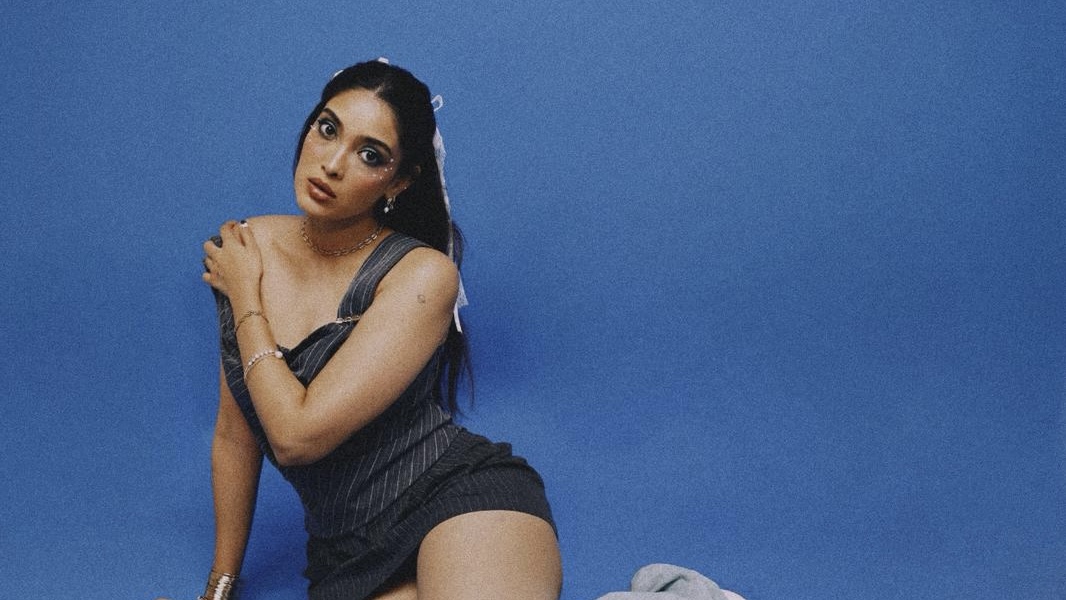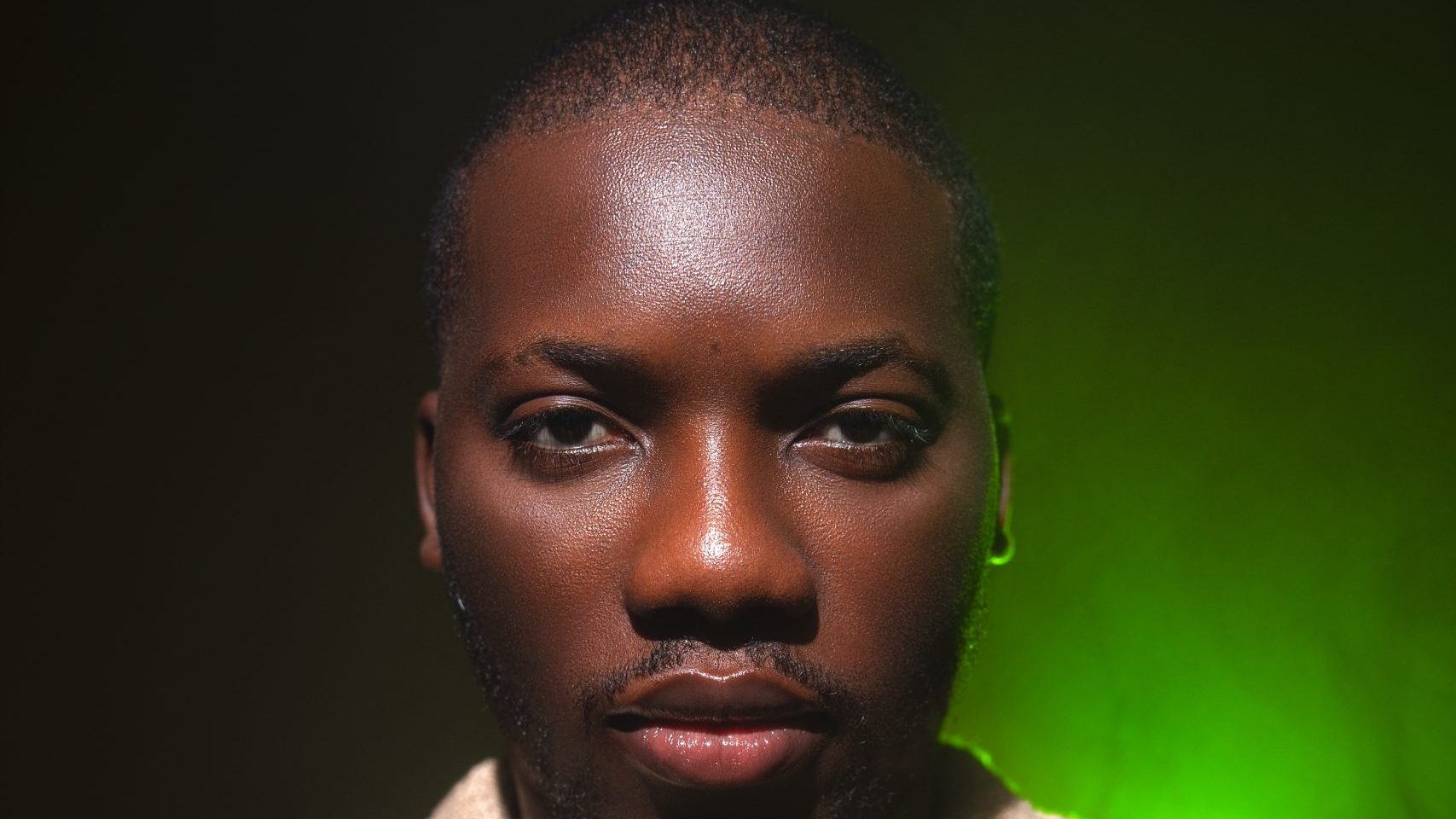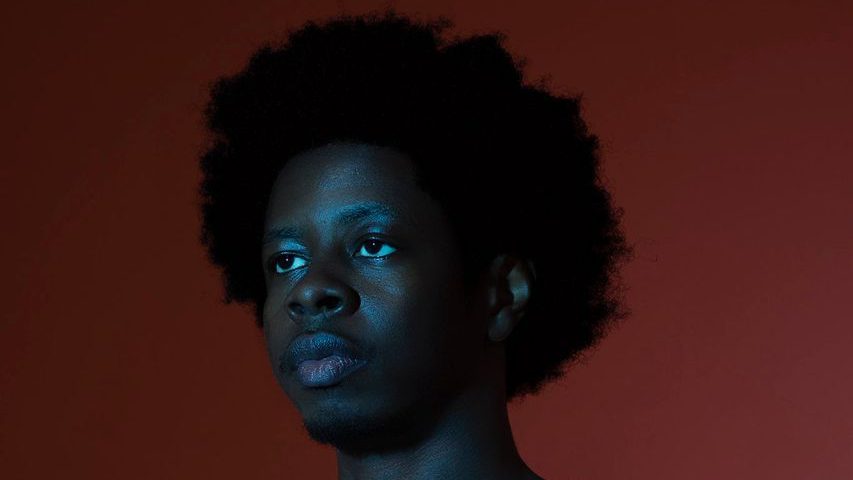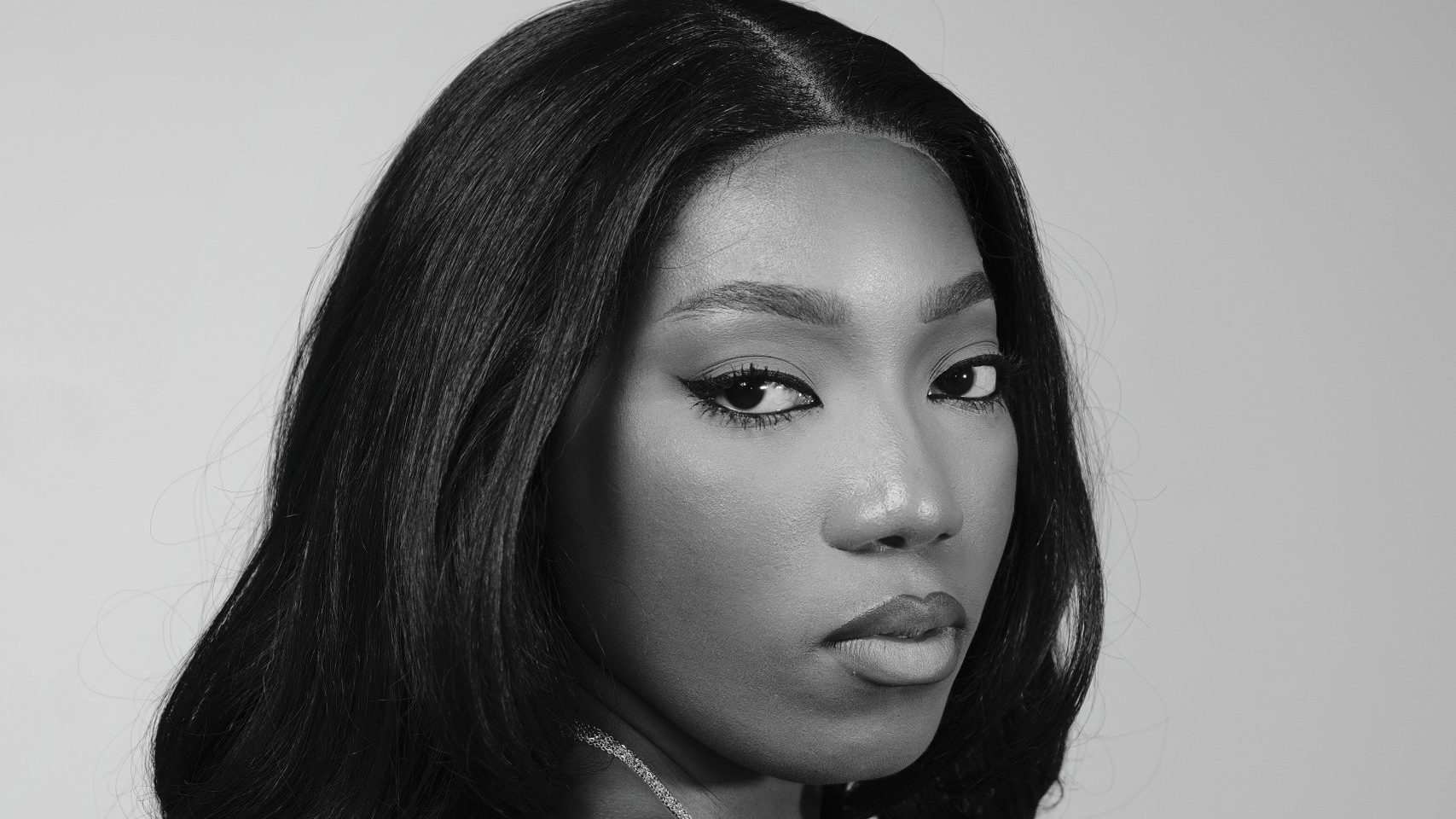Khevna’s path to music embodies the saying “what is meant for you will never miss you”. She didn’t step straight into music like many other artists; rather, she explored other paths, ranging from studying interior design to considering a medical career, before making her way home to music in a new country. Yet, through each turn, creativity remained a constant, whether painting, dancing, or training in Indian classical music. Today, she blends those early influences with the global rhythms of Afro pop, crafting a sound that reflects her cultural roots while embracing new horizons. In this conversation, Khevna opens up to WeTalkSound about her journey, her experience as a transplant in the Lagos music scene, her breakout single Lonely, and her vision for the future.
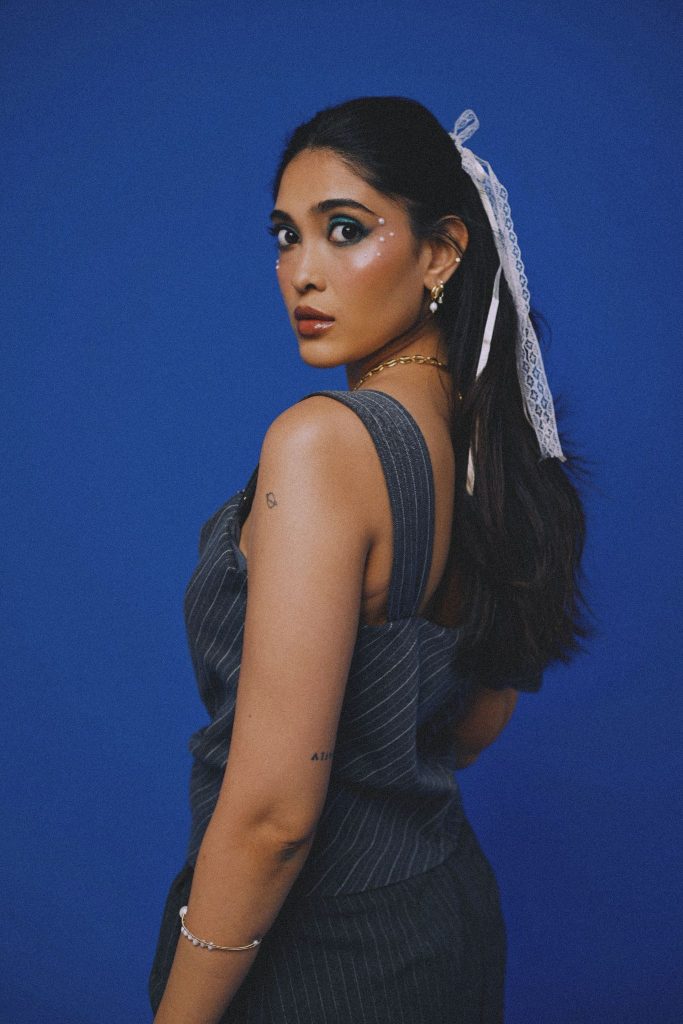
You didn’t start your career in music straight away. What finally convinced you to take the leap?
I’ve done a lot of different things before finding my way here. But when you hit your lowest points, you realise you need to focus on what truly makes you happy. Music was always there for me, even though I never thought I could actively pursue it; I had no musicians in my family, no role models in this profession. At some point, it just became clear that this was what gave me satisfaction and kept me feeling good and healthy.
You trained in Indian classical music, studied performance in LA, and now you’re exploring Afro-Pop in Lagos. How do all these different worlds come together in your sound?
Afro-Pop is very new for me; it’s only been about a year and a half since I moved here. But I was already following artists like Rema and Omah Lay back in India, and I admired how they incorporated cultural sounds. I realised Afro-folk and Gujarati folk (originating in the west of India, where I’m from) actually share similarities in beats, soundscapes, and even dance moves. So when I blend them, they fit together naturally. My aim is always to make it feel like current pop, while staying authentic to my roots.
Why did you move to Lagos in the first place?
It was never the plan! My dad lives here, so I came to visit him. I had no idea how huge the music industry was in Lagos. My dad encouraged me to give it a try, so I joined a songwriting camp. Honestly, I wasn’t expecting much, but the songs we created did far better than I imagined. That experience convinced me to stick around. I still go back and forth between India and Lagos, but I’d say I’m based here now. What’s interesting is, I came here in 2015 to visit my dad, and it was the first time I decided and said out loud that I wanted to pursue music professionally. I had no idea that I was lowkey manifesting my future.
Talk about a full circle moment! So, what are some of your favourite things about Nigeria so far?
I love the weather; it’s never too cold. I also love the party culture and the vibrancy of the music scene. The industry here is so alive, and I’ve been lucky to make good friends who’ve shown me around.
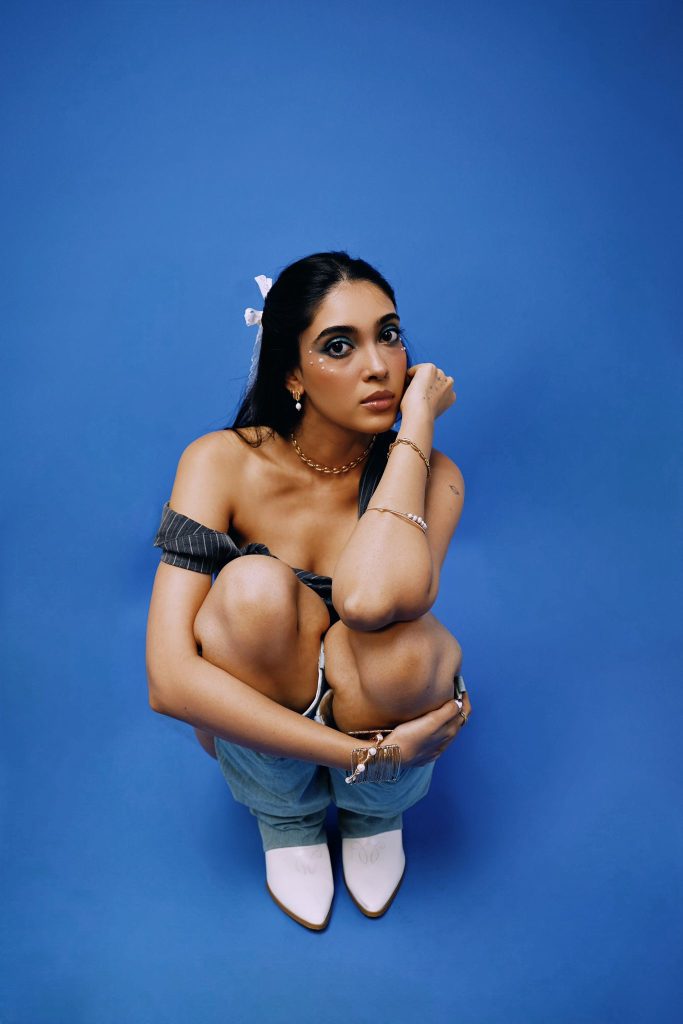
And how has living and creating in Lagos shaped you as an artist?
It’s made me faster and more results-oriented. Lagos moves quickly, and you have to match that energy. I’ve learned not to obsess over perfection, but to take action and deliver.
Who are some of your biggest musical influences?
It’s a mix. On the global pop side: Rihanna, Dua Lipa, Jessie Reyez, Julia Michaels. From India, I grew up listening to classical singers like Begum Sultana Parween, who isn’t mainstream Bollywood but deeply rooted in tradition. My playlist is a strange but beautiful mix of both worlds.
Afro-Pop is having a global moment right now. How do you see yourself contributing to that space?
By bringing my own culture into it. It’s important for the world to hear all kinds of voices and traditions. Before, the mainstream spotlight was mostly on Western formats. Now we’re seeing mAfro, Latin, and Middle Eastern sounds enter global pop. My contribution is simply being myself, an Indian artist, adding my cultural lens to Afro-Pop.
Beyond music, you’ve practised yoga and meditation for many years. Do these practices influence your songwriting?
Yes, definitely. They help me clear my head and choose presence over perfectionism. I learned this from my mom, who has practised yoga daily for nearly 30 years. I’ve been practising for about 15 years myself, though not as consistently. But it grounds me and keeps me aware, which seeps into my songwriting.
Let’s talk about your single Lonely. What sparked the idea of mixing Hindi and English lyrics over Afro-inspired beats?
It actually happened spontaneously during a songwriting camp. My co-songwriter left some parts empty and asked me to fill them in Hindi. I just mumbled something, and the words came out naturally. We (the producer, writer and I) all knew instantly it worked. The mix of Hindi and English felt organic, not forced.
The reception has been overwhelmingly positive. How did that feel?
Incredible. The very first teaser blew up, and suddenly people were talking about the song rather than about me being an Indian artist doing Afro-Pop. Social media can be tricky, but in this case, all the attention was on the music itself. The feedback has ranged from “good” to “crazy,” with no negatives, which gave me a lot of confidence.
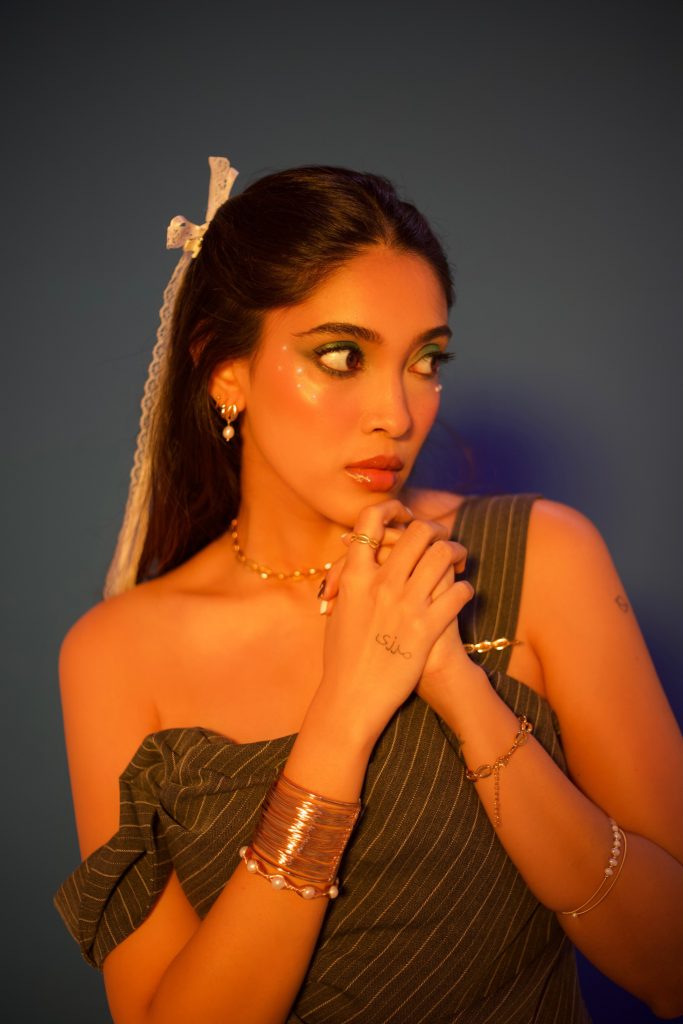
You’ve said the camp where Lonely was born felt a little chaotic. Can you take us into that moment with you?
Yes, it was my first-ever songwriting camp, just three months into being in Lagos. I was still adjusting, still an outsider, so it was overwhelming. But sometimes chaos produces the most beautiful results, and that was the case here.
The song deals with love slipping away. Do your lyrics usually come from personal experience or universal stories?
Both. Some parts are very personal, like the chorus of Lonely—even though I’d probably never say those words out loud to my lover in real life, because of how funny human nature is, we feel so many things we don’t say. But I also like to keep my lyrics open-ended so people can interpret them through their own experiences. I’ve also written about family relationships, friendships, and the feeling of being lost, not just love from the perspective of romance.
When people are first introduced to you and your music, what do you hope they take away from it?
I hope they feel heard and relatable. I want my music to tap into unspoken concepts, those feelings people don’t always articulate but recognise when they hear them in a song.
What’s your ultimate career goal? When will you go, ‘okay, NOW I’ve made it’?
Of course, I want millions of people to hear my music. But beyond that, I want to keep improving: vocally, as a songwriter, and in production, mixing, and mastering. My goals are huge, so I don’t know if I’ll ever feel like I’ve “made it.” It’s about constant growth.
And what’s next for you?
More Afro pop exploration, definitely. I still feel like I’m at the starting line, but I’m excited to keep building and seeing where the sound takes me.
